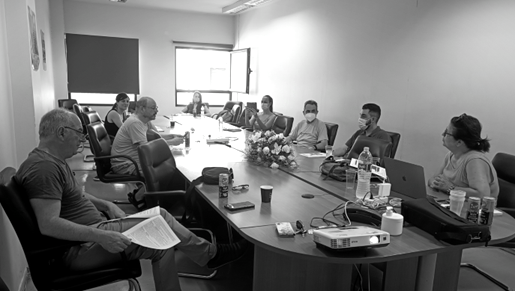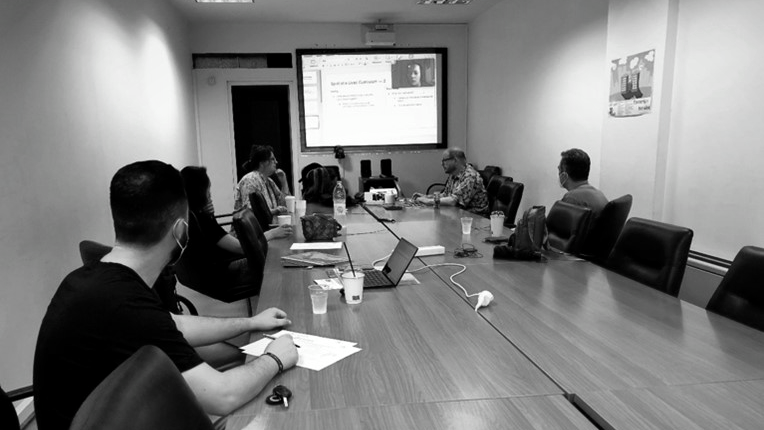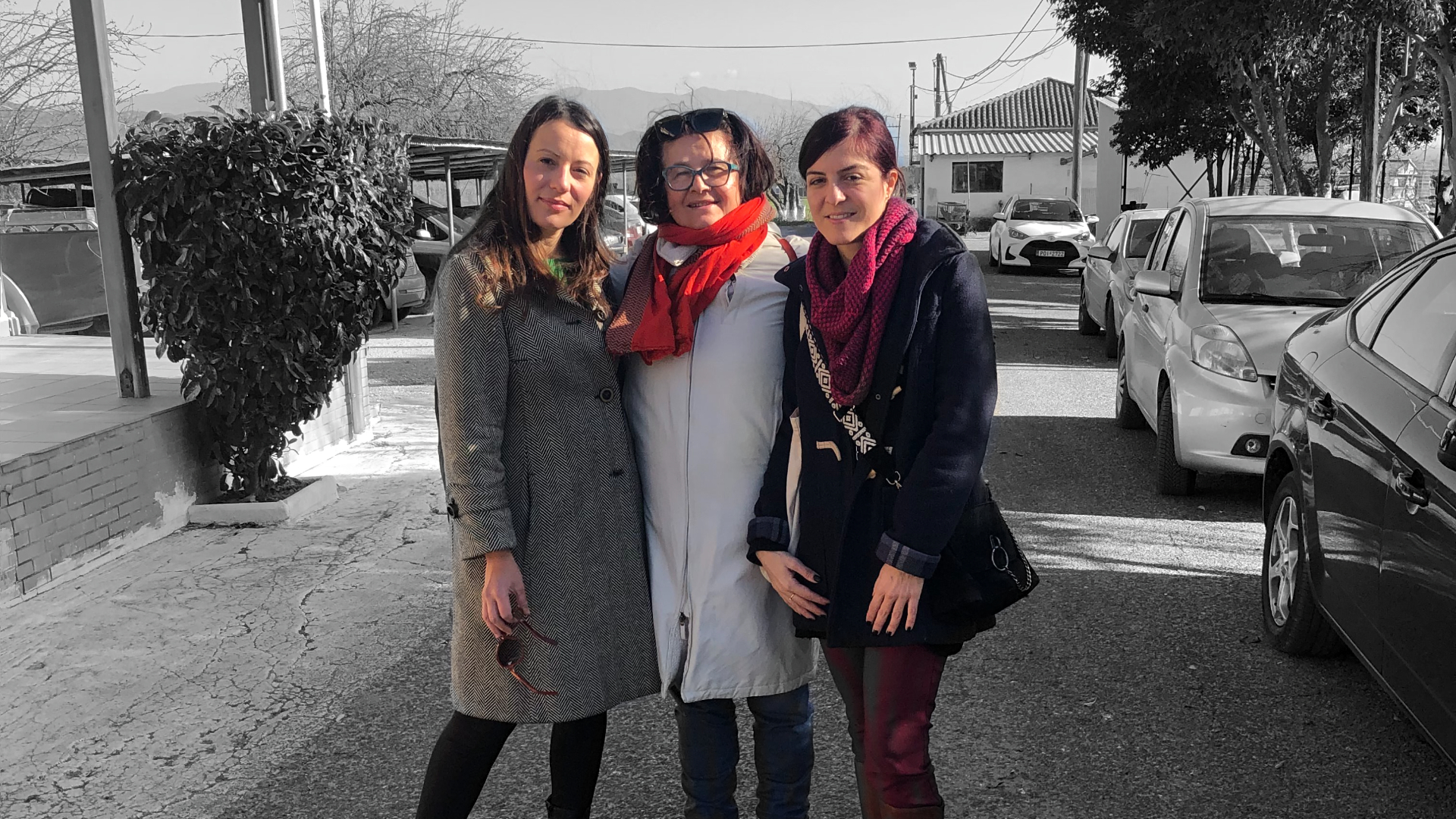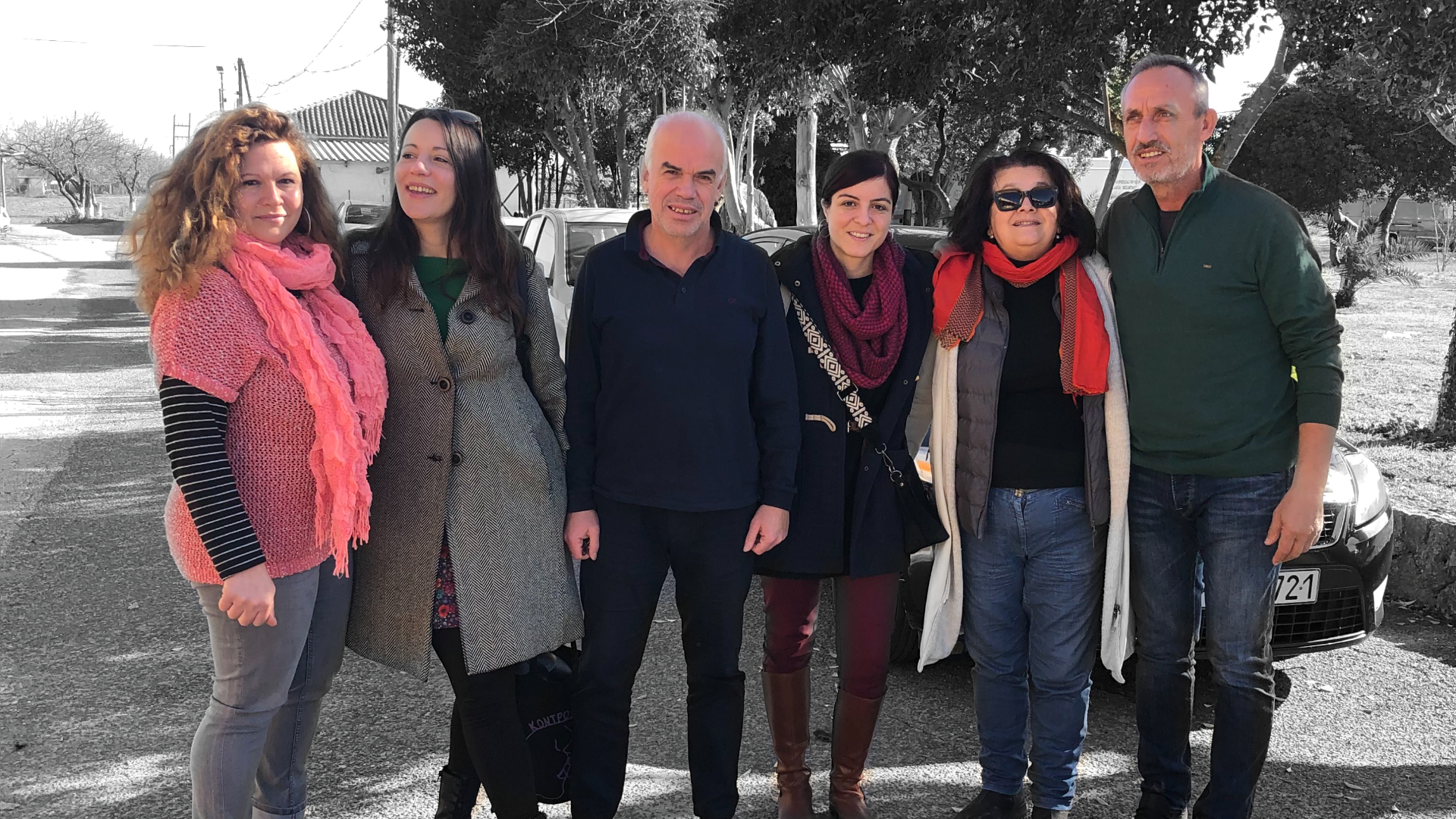NewsLetter #1
31 DEC. 2022
01
Introduction
Short presentation of ACTinPRISON
The research project Interaction matters: Research on development of alternative curricular experiences for young prisoners and prospective teachers (ACTinPRISON), funded by H.F.R.I.(Hellenic Foundation for Research & Innovation), started on May, 26 and it will last 30 months.
The ACTinPRISON project pursues to respond to issues of social inclusion and challenges concerning young offenders’ rehabilitation. More specifically, ACTinPRISON’s innovative design employs dialogic methodologies to develop alternative forms of education for young inmates, recognizing the need for educators to better understand the lives of marginalized youth. Prospective teachers are approached as collaborators with incarcerated youths in creating common spaces, social and educational, that inspire multifaceted senses of belonging and that allow for collaboration in designing relevant and meaningful educational programs. ACTinPRISON addresses the inadequate educational opportunities for young prisoners as a matter of social justice; the design incorporates the youth themselves as experts on their own life experience, able to contribute productive ideas about potentially effective educational strategies.
02
The Research Team
The Research Team is interdisciplinary and consists of nine members, academics and post-graduate researchers, who contribute with their expertise and research experience to different aspects of the implementation of ACTinPrison. Specifically, the project ACTinPRISON is coordinated by Charoula Stathopoulou, Professor of Mathematics Education. It also includes three academics with diverse and complementary scientific expertise, such as Christos Govaris, Professor of Intercultural Education, Roula Kitsiou, Assistant Professor of Sociolinguistics, and Peter Appelbaum Professor of Education and Curricular Studies. In addition, Vassiliki Chrysikou is a post-doctoral researcher on Mathematics Special Education, and four doctoral students conduct research on different prison education aspects, such as Ioannis Fovos, who is interested in mathematics prison education, Sotiria Kalbeni, who studies language literacy in prison education contexts, Maria Karazanou, who focuses on arts-based prison education and specifically in participatory theatre in prison contexts, and Vangelis Katsigiannakis, who specializes in ICT aspects of prison education.
03
Kick-off meeting
In the beginning of project’s opening, the kick-off meeting took place in University of Thessaly. In this meeting the entire research team, included Pr. Peter Appelbaum from Arcadia University, participated. Firstly, the principles, the objectives, and the methodology of the project were presented by the coordinator, while the participants had the room for questions and clarifications. The meeting closed by Professor Appelbaum’s contribution who shared his expertise and the conceptual framework of developing alternative curricular activities following the principles of a lived curriculum.

04
Workshop for the research team
Pr. Peter Appelbaum and the research team organized a workshop on sharing experience on international existing educational policies for vulnerable populations. In the beginning of the workshop an open discussion took place around the existing educational policies in our countries and beyond. Then Peter Appelbaum, with long experience in curricular studies, developed his theoretical perspective on the curricular activities; a perspective compatible with the goal of ACTinPRISON. The presentation of his theoretical perspective that strongly inform our work in prison—stressing the need of a lived curriculum—followed the presentation of examples on the development of curricular activities. At the end the participants reflected on both the examples and the theoretical part and asked questions that could help them apply what was discussed.

05
1st Coordination meeting
During the 1st Coordination meeting the research team mostly discussed about administrative issues. More specifically, we discussed about the timeline of the activities as it is formed after the starting date of the ACTinPRISON. Moreover, we discussed about the activities that need to be implemented until the middle of the program and focused on the division of tasks and roles in each work package.
06
Literature review
During the first months of the implementation of the Act in Prison project, a literature review, amongst others, was carried out by the researchers Sotira Kalmpeni and Maria Karazanou, regarding education in prison and all the individual issues that affect its design and provision. Starting from the term ‘delinquency’ and how it is defined, constructed and reproduced in discourse, the terms ‘social’ and ‘educational’ exclusion as well as ‘prisonisation’ and ‘institutionalisation’ were examined, as well as, how these phenomena affect the profiles of prisoners. The ways in which the right to education in prison is enshrined by international, European and national institutional texts, the main approaches to education in prison and how they are influenced by the different ways of dealing with delinquency in different countries, as appeared in the literature, were presented, making special reference to the Greek context and describing in detail how education is provided in prisons in Greece. The possibilities and limitations of prison education were then discussed with reference to important scholars internationally, while an extensive description of the factors that can affect the provision of prison education was presented, such as the policies applied in each state, the particular space of the prison, staff training and more. Finally, the reasons why adult education is suggested as an appropriate approach for the design and implementation of educational programs in prisons were analyzed while alternative and more creative ways of enhancing linguistic, mathematical and digital literacy were discussed, as well as, the value of providing arts education in prison, and in particular theatre education, both as a tool and as a subject of knowledge, within an approach based on informal curricula and the principles of adult education.
07
Good practices review
During the first phase of ACTinPRISON project a good practices study was implemented by the main researchers Vangelis Katsigiannakis and Ioannis Fovos, concerning prison education offered by various agents on a local, national, European and international level. More specifically, we explored the agents and funding contexts of prison education during 1995-2022 (regarding Greece, from 2000), so as to identify the prioritization (or not) of prison education as a field of intervention for educational or other empowering actions of populations who experience incarceration in detention centers. The study reports the identity of such research projects, such as funding resource, the sociopolitical context/country it refers to, the educational context and educational topics of the offered education, the means and methods used in these interventions. Additionaly, the study reports the educational and other results that arose in the context of the interventions and attempts a comparison of projects realized within or outside the European context, in order to place ACTinPRISON on this map of interventions. The most important conclusion arising from the study refers to the innovative character of some methodological choices and principal approaches employed by ACTinPRISON as compared to existing research and tradition in prison education that is relevant to integrating drama in education techniques and ICT (gamification) into developing language and mathematical literacy, as well as to creating common spaces of interaction among detainees and students of similar ages.
08
Needs analysis
From October to December 2022, we have designed and implemented needs analysis of young prisoners who participate in the research by the 3 main researchers of the project, Charoula Stathopoulou, Roula Kitsiou and Maria Karazanou. Initially, we contacted the youths and we invited them to participate in ACTinPRISON with the help of the detention center’s social service. Thus, an initial group of 12 people was created, who attend either primary or secondary school and speak diverse languages, while using Greek on a differentiated level. Afterwards, using an interactive, participatory and arts-based (drama in education) process, we applied critical communicative methodology, in order to (a) immerse participants into the meaning of research and its importance, so that they recognize the context within which they are invited to share their stories and experiences, and to also be able to critically approach our own choices and practices; (b) to get to know each other better, so as to gradually develop a sense of belonging in a group; and (c) to map their sociolinguistic and educational profile, so that we can build on that when designing language and mathematical literacy interventions in next stages of the project. The previous experience some youths had participating in similar actions of the project CoSpiRom implemented by the same research group, facilitated the attraction of more youths in the team, as well as the fruitful cooperation with the social service, who mediated our access to the youths.
09
Acknowledges
For responding to ACTinPRISON dissemination’s needs a website has been created: https://actinprison.sed.uth.gr
10
Photos outside the Administrative building of E.A.S.K.N. Kassavetias


11
Website
The research team thanks the Head of the Rural Correctional Detention Youth Center as well as the social workers Leonida Kotoulas, Jeni Poziopoulou and Christina Tiblalexi for facilitating the entrance and supporting the actions of the project ACTinPRISON.
12
Social media
Two social media have been developed, facebook and Instagram:

The research project was supported by the Hellenic Foundation for Research and Innovation (H.F.R.I.) under the “2nd Call for H.F.R.I. Research Projects to support Faculty Members & Researchers” (Project Number: 4164)
